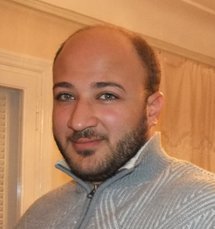BEIRUT: Hezbollah chief Hassan Nasrallah on Saturday ruled out the arrest of four members of his militant group indicted by a UN court for the 2005 assassination of Lebanese former premier Rafiq Hariri.
In his first reaction to charges filed by the Special Tribunal for Lebanon (STL), Nasrallah rejected the verdict along with "each and every void accusation" by the Netherlands-based court, which he said was heading for a trial in absentia.
"We reject the Special Tribunal for Lebanon along with each and every void accusation it issues, which to us is equivalent to an attack on Hezbollah," Nasrallah said in an hour-long televised speech.
"No Lebanese government will be able to carry out any arrests whether in 30 days … 30 years or even 300 years," said the Shia leader whose group dominates the current government.
"What will happen is a trial in absentia, a trial in which the verdict has already been reached."
The STL on Thursday handed Lebanon’s prosecutor general Said Mirza arrest warrants for four members of the Iranian- and Syrian-backed group in connection with the February 14, 2005 bombing that killed Hariri and 22 others in Beirut.
Lebanon has 30 days to serve out the STL arrest warrants. If the suspects are not arrested within that period, the tribunal can then publicly call on them to surrender.
But the whereabouts of the four remain unknown — a fact Nasrallah said was unlikely to change. "I doubt that anyone can find the ‘suspects’ or arrest them," he said.
Among the suspects is senior commander Mustafa Badreddine, brother-in-law of top Hezbollah operative Imad Mughniyeh who was assassinated in a 2008 bombing in Damascus.
Badreddine is believed to have been implicated in the 1983 US and French embassy bombings in Kuwait and to have escaped from prison in the Gulf state during the Iraq invasion of 1990.
He is now accused of masterminding the Beirut bombing that killed Hariri, Lebanon’s most powerful Sunni Muslim leader who had close ties to Saudi Arabia.
Nasrallah, who had previously warned his party would "cut off the hand" of anyone who tried to make arrests, on Saturday defended his militants whom he said had an "honorable history of resistance."
The STL, the first international court with jurisdiction to try an act of terrorism, has triggered a deep political crisis in the volatile Middle Eastern country, leading to the collapse of the Western-backed government of Hariri’s son Saad Hariri and sparking fears of yet another round of sectarian-based violence.
But Nasrallah on Saturday assuaged fears of civil unrest, reiterating charges that the STL was a plot by his arch-foe Israel to crush Hezbollah and pit Lebanon’s Sunni and Shia Muslim communities against each other.
"The tribunal aims to incite discord among the Lebanese, but there will be no clashes between Sunnis and Shias, nor will there be another civil war," Nasrallah said.
He accused the STL of corruption and of having intentionally leaked information to the press in recent years to tarnish the image of Hezbollah, founded in 1982.
In elaborately edited segments, the Hezbollah-controlled Al-Manar television aired footage which Nasrallah said showed former UN investigator Gerhard Lehmann receiving a wad of cash in exchange for documents in the Hariri case.
Al-Manar also aired a document which Nasrallah said proved investigators had transferred IT equipment across Lebanon’s southern border into Israel when it moved its staff to the Netherlands in 2009.
The STL indictment comes at a delicate time for Hezbollah, with its ally Syrian President Bashar Al-Assad facing an unprecedented uprising against his rule.
The Hariri murder sparked a wave of massive protests in Lebanon in 2005 which, combined with international pressure, forced Syria to withdraw its troops from the country two months later after a 29-year deployment.
Syria was widely suspected of having a hand in Hariri’s murder but has denied involvement.


